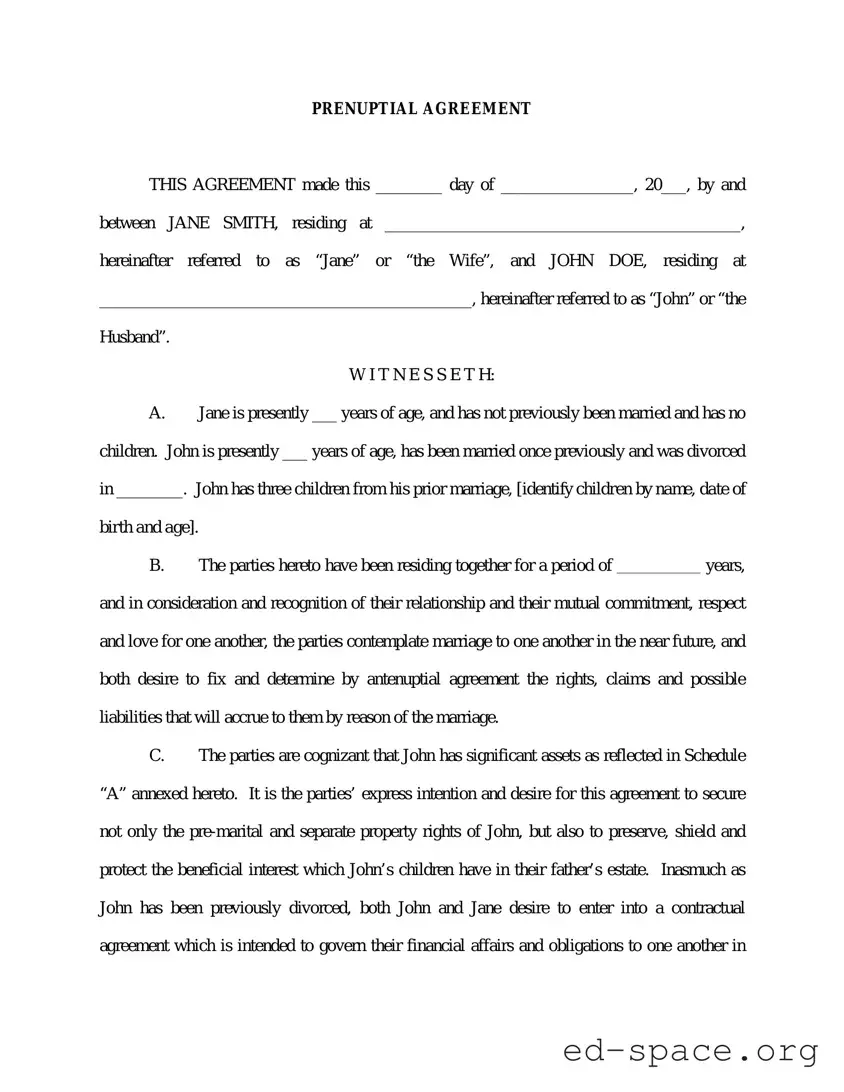What is a prenuptial agreement?
A prenuptial agreement, often called a prenup, is a legal document created by two individuals before they get married. It outlines how assets and debts will be handled in the event of divorce or separation. The agreement can also address issues like spousal support and property division, providing clarity and protection for both parties.
Why should we consider a prenuptial agreement?
Many couples choose to create a prenuptial agreement to protect their individual assets and ensure that their financial interests are safeguarded. This can be especially important for those entering a marriage with significant assets, business interests, or children from previous relationships. A prenup can help prevent misunderstandings and disputes in the future.
What should be included in a prenuptial agreement?
A prenuptial agreement typically includes details about each party's assets and debts, how property will be divided in case of divorce, and whether spousal support will be awarded. Couples can also include provisions for how to handle future income, investments, and inheritance. It's important to tailor the agreement to fit both parties' needs.
Is a prenuptial agreement legally binding?
Yes, a prenuptial agreement can be legally binding if it meets certain requirements. Both parties must enter into the agreement voluntarily, with full disclosure of their financial situations. The agreement should also be fair and reasonable at the time of signing. It is advisable to have the agreement reviewed by a legal professional to ensure its enforceability.
Can a prenuptial agreement be changed after marriage?
Yes, a prenuptial agreement can be modified or revoked after marriage. Both parties must agree to the changes, and it is recommended to document any modifications in writing. This ensures that the updated terms are clear and legally enforceable.
What happens if we don’t have a prenuptial agreement?
If a couple does not have a prenuptial agreement, the division of assets and debts will be determined by state laws in the event of a divorce. This can lead to outcomes that may not align with either party’s wishes. Without a prenup, the court will make decisions based on various factors, which may not take personal circumstances into account.
How do we create a prenuptial agreement?
Creating a prenuptial agreement typically involves both parties discussing their financial situations and what they want the agreement to cover. It is advisable to consult with separate legal counsel to ensure that both parties’ interests are protected. Once the terms are agreed upon, the document should be drafted, reviewed, and signed by both parties.
When should we start discussing a prenuptial agreement?
It is best to start discussing a prenuptial agreement well before the wedding date. This allows both parties to consider their options and negotiate terms without the pressure of an impending marriage. Open and honest communication is key to ensuring that both individuals feel comfortable and understood during the process.

